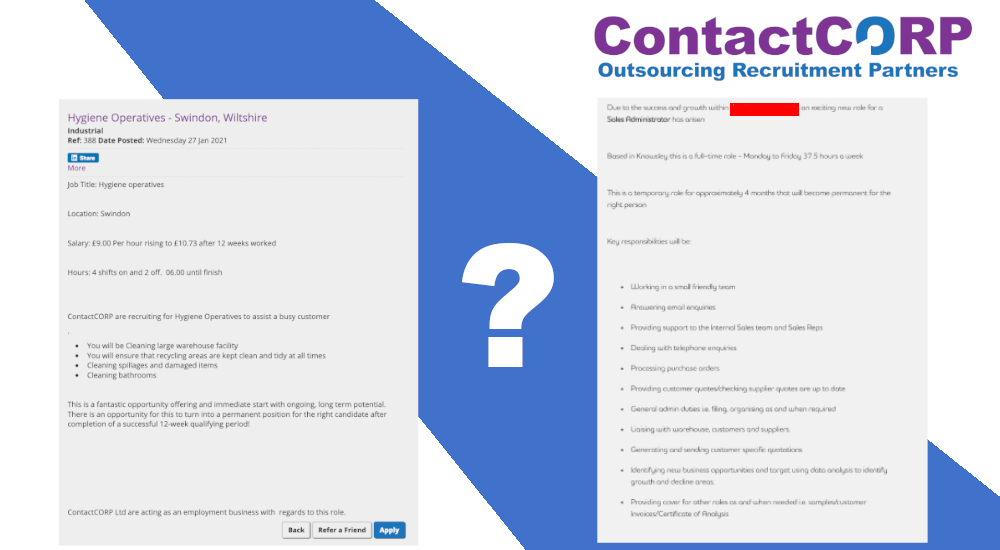Can you spot the difference?

Fake job adverts are on the rise. Covid-19 has brought a wave of desperation from employers to save money, cybercriminals preying on job seekers and false adverts made to probe the market. Here we look at ways of identifying fake job adverts.
Saving money
Employers are looking to save as much money as they can. With waves of redundancies a common occurrence it stands to reason that they want to probe the market to see if they can replace staff for cheaper alternatives. A false advert yields information such as salary expectations and candidate availability, giving them a window to throw aside a committed, long standing member of staff to cut costs. A huge warning sign here is if your employer starts advertising your role – it may be time to start searching yourself for a new job.

Cybercriminals
This includes individuals or organisations that are out to steal your money or use you for money laundering purposes. It is a huge red flag for an employer to charge you training fees, give you a bill for PPE or admin fees. A common occurrence is for an ‘employer’ to advertise for “Payment Processing Agents” where they transfer the employee a large amount of money, making them forward it to another account for a percentage earnings. This process is money laundering and has resulted in unwitting individuals being sentenced.
How to spot them
Any job advert that doesn’t have a salary specified or has one that is obscene is an instant red flag. Spelling errors are another major giveaway, as is having the recipient email address not showcasing a company domain. If the email reads “hotmail” - run.
The truth is...
The harsh truth is that on the surface most fake adverts are identical to real ones. There is no way you can tell for sure that a company is real by the presence of a website, that a role is genuine and not just posted to add your email to a mailing list or the role involves illegal activity. We advise that if the job looks too good to be true – it probably is. If it’s too good to pass up, and if it’s safe to do so then check out reviews on a trusted platform such as Google or Facebook.

Reviewing reviews
Another seedy tactic is for fake job adverts and companies to have stooge reviews posted, most probably, by the person who wrote the ad. If it’s safe, check the authenticity of the reviewees such as clicking on their profiles. One clear giveaway is if all of the reviews match in terms of tone of voice or if their profiles are all recently created, set to private or have only a few posts spread over several years.
Trust
Trusted agencies are a sure-fire way of securing your next job. One of the things that agencies such as us do is authenticate the businesses and the roles we recruit for, ensuring strict compliance to UK regulations. One of our goals is to secure ethically sourced jobs via the governments Kickstart scheme for 16 – 24 year-olds on Universal credit. We listen to you, find you a job that doesn’t replace an existing employees' role and help kickstart your career the right way.
Chat with us today
Give us a call on 01793 987091, email us at info@contactcorp.co.uk or check out our current vacancies!